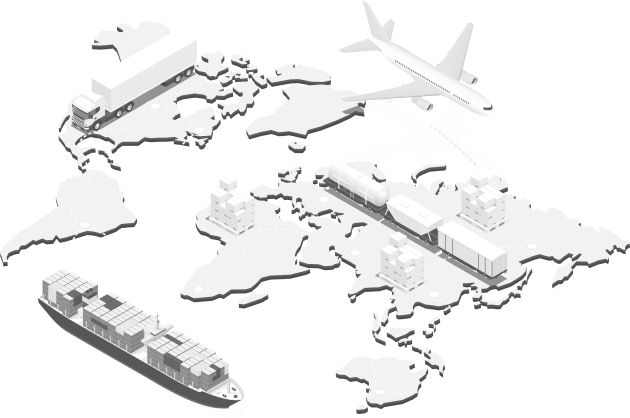 When it comes to importing produce, plants, and flowers, the U.S Department of Agriculture and the Customs and Border Patrols are working hard for Prime Fresh Handling’s (PFH) customers – and the fresh food industry. Without their diligence, pests and diseases from other countries could easily cross our borders and potentially spread to domestic crops here in the U.S.
When it comes to importing produce, plants, and flowers, the U.S Department of Agriculture and the Customs and Border Patrols are working hard for Prime Fresh Handling’s (PFH) customers – and the fresh food industry. Without their diligence, pests and diseases from other countries could easily cross our borders and potentially spread to domestic crops here in the U.S.
In a recent PFH blog post, Chances Are, Her Flowers Came from Columbia (May 2022), Mother’s Day is one of the busiest seasons for imported fresh-cut flowers. Over the past two years, the Customs and Border Patrol (CBP) specialists have inspected more than one billion cut flower stems bound for stores and households throughout the United States. As a result of those inspections, the CBP prevented roughly 2,000 pests from entering the U.S.
After all, “No one wants to give Mom a bouquet teeming with insects or diseases that can wreak havoc on the environment,” said Kevin C. Harringer, Executive Director of the CBP’s Agricultural Programs and Trade Liaison. He adds, “CBP Agriculture Specialists are on the frontline ensuring that cut flowers, hanging baskets, and other plan imports are pest-free and presentation-ready…”
How Customs & Border Patrol Contributes
CBP Agriculture Specialists physically inspect all flowers and plant materials, conducting garden pest control and plant pest control tests before they enter to ensure that they are free of pests and diseases. During a typical day, CBP’s highly trained agriculture specialists can seize up to and even over 3,000 prohibited plant, meat, animal byproducts, and soil products – and intercept up to 250 insect pests at U.S. ports of entry.
The inspections include shaking the flowers to dislodge insects and the use of magnifying glasses to locate pests and diseases. CBP sends any pests and diseases to the U.S Department of Agriculture (USDA). Here, digital imagery and other technology is used to confirm the identity of foreign insects and diseases. They then get the final “yay” or “nay” as to whether the imports are allowed to cross our borders.
What is USDA and What Else Do They Do?
The U.S. Department of Agriculture (USDA) is the federal agency that proposes programs and implements policies and regulations related to American farming, forestry, ranching, food quality, and nutrition.
And here’s a fun fact: President Abraham Lincoln founded the USDA in 1862, when about half of all Americans lived on farms. The department now has 29 agencies with wide-ranging responsibilities, from food safety inspections to economic development for rural communities.
The USDA also is responsible for several social welfare programs, including: school meal nutrition; nutrition education; food assistance for women, infants, and children (WIC); and the food stamp program known as Supplemental Nutrition Assistance Program (SNAP). Also, this federal agency pays subsidies to farmers and purchases their surplus crops in order to provide federally funded school lunch programs to qualifying children.
That’s quite a range of responsibilities, and it’s not even a complete list. What’s relevant to the topics of garden pest control and plant pest control is, they pay close attention to what the Customs and Border Patrol sends them, and they make decisions as to whether crops from certain regions will be allowed onto U.S. soil.
While we here at PFH experts in our field of import/export, we’re also glad to know how hard these two government agencies work together to ensure safe delivery of our customer’s cargo.
Global Services
Whether it’s a box, a pallet, or a companywide logistics operation, Prime Fresh Handling is skilled in achieving safe on-time delivery of time- and temperature-sensitive material and products between any point of origin and destination around the globe.
In fact, PFH is also known as a global leader in perishables transportation of fresh produce, fish, cut flowers, and plants. With state-of-the-art facilities in Europe, South America, and across North America, PFH leverages industry-leading technologies such as
vacuum cooling, sorting, re-packing, bar coding, labeling, and temperature monitoring to guarantee a consistent, safe, and fresh delivery.
Contact Prime Fresh Handling
For information, contact PFH General Manager, West Coast: Cristina Moscoso at 323-328-8650, via email at cmoscoso@prime-fresh.com, or visit www.prime-fresh.com.

